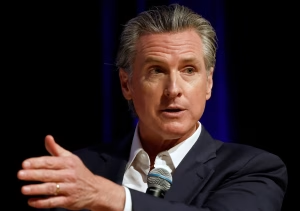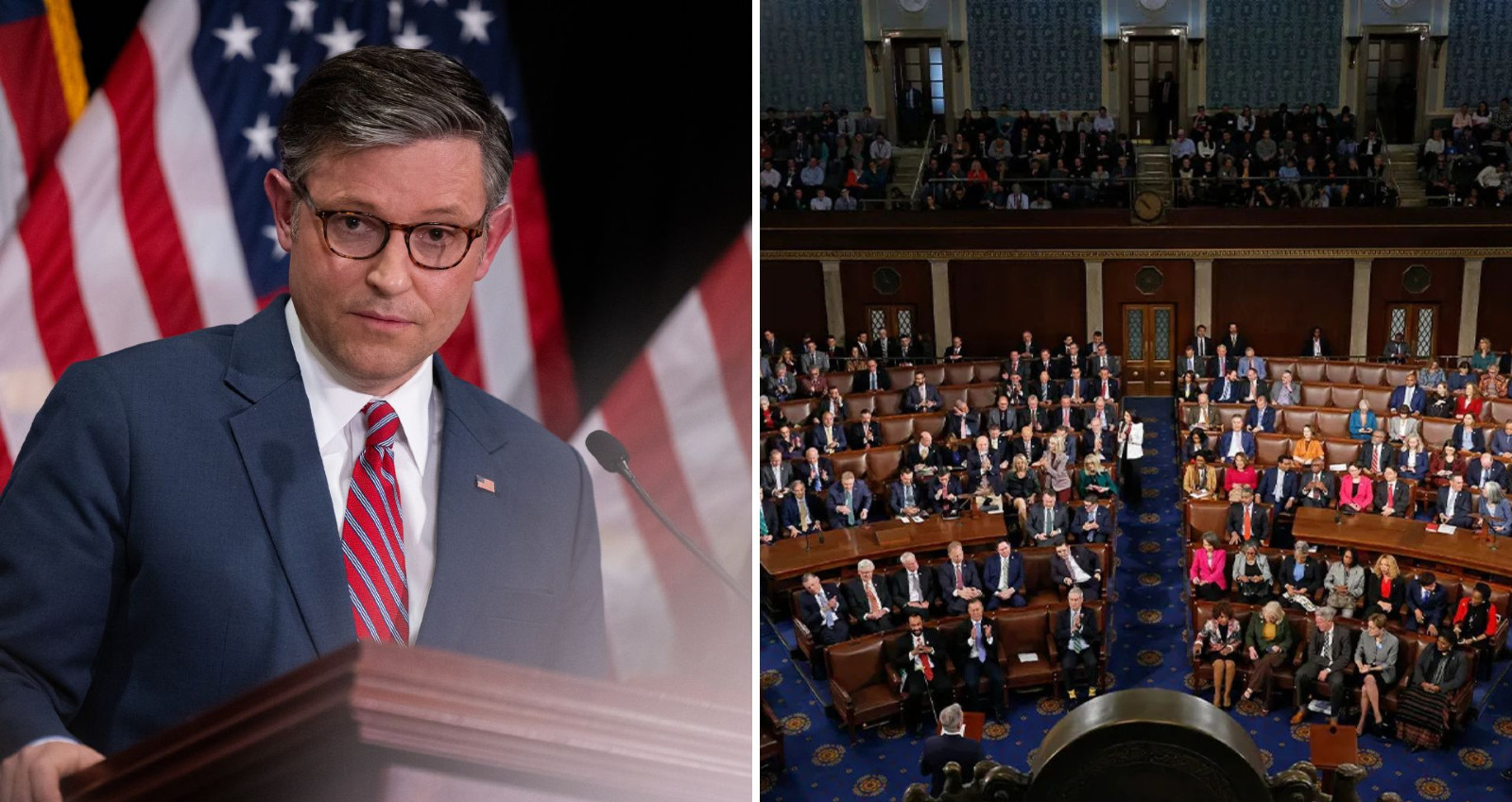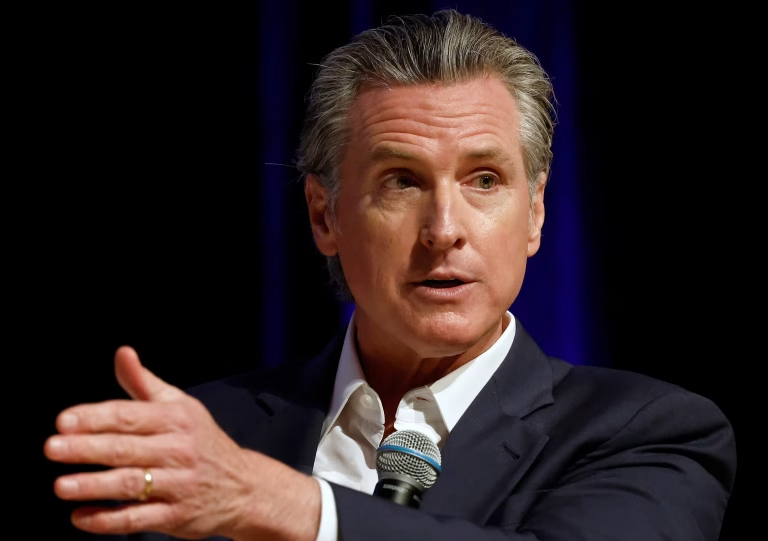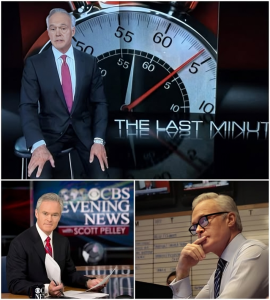The United States government is now in its fourth week of a partial shutdown, leaving hundreds of thousands of federal employees unpaid, disrupting essential services, and drawing increasing frustration from the American public. As partisan tensions rise in Washington, House Speaker Mike Johnson has taken the spotlight with pointed remarks accusing Senate Majority Leader Chuck Schumer and House Minority Leader Hakeem Jeffries of allowing political fears to dictate their approach to the crisis. Johnson argues that the Democratic leaders are “afraid” of challenges from the far-left in New York, particularly from Marxist-leaning candidates, and that this fear is impeding meaningful negotiations to reopen the government.
Johnson made these claims during a recent interview on Fox Business, where he framed the government shutdown as a result of Democratic obstruction and political calculation rather than legislative necessity. According to Johnson, House Republicans are ready to return to session within 48 hours and pass a clean, short-term funding measure — the same bill that the GOP passed in the House — but Democrats continue to block it.
The House-Passed Short-Term Funding Bill
The short-term funding bill in question, known as a “continuing resolution” (CR), is designed to provide government funding until November 21, allowing federal operations to continue while Congress negotiates longer-term budget solutions. Johnson emphasized that the House GOP version is a “clean” bill, totaling just 24 pages, without additional partisan provisions, earmarks, or extraneous spending initiatives.
“This is a totally nonpartisan, very simple piece of legislation,” Johnson said during the interview. “All it does is keep the lights on so Congress can continue to work on appropriations for the annual budget and other issues. There’s nothing political about it.”
Johnson criticized Democrats for repeatedly voting down the measure, claiming that their alternative proposals — described by Johnson as “dirty CRs” — contain spending priorities that are both wasteful and politically motivated. He cited funding for healthcare benefits for illegal immigrants, billions of dollars in international aid, and support for media organizations as examples of provisions in the Democratic counterproposal that he considers objectionable.
Accusations of Political Fear
Johnson’s most controversial statements focus on the motivations of Schumer and Jeffries. He argued that both leaders are being influenced by the threat of challenges from the far-left wing of the Democratic Party in New York. According to Johnson, Schumer and Jeffries are concerned about losing seats to Marxist-leaning candidates who are gaining traction in urban districts, and this fear is shaping their legislative strategy.
“It is very simple — here’s the reason why,” Johnson said. “Chuck Schumer and Hakeem Jeffries, the two leaders in both chambers for the Democratic side, are afraid of their far-left flank, they’re afraid they’re going to get a challenge in New York because Marxism is all the rage, and they’re going to lose their seats, so they’re putting up a fight.”
Johnson referenced previous instances where Democratic leaders refrained from endorsing far-left candidates who had gained media attention and public support. He pointed specifically to socialist candidates such as Zohran Mamdani, whose campaign for New York City mayor has drawn attention within the Democratic Party. While some Democrats, including Governor Kathy Hochul, have publicly endorsed Mamdani, Schumer and Jeffries have not offered support, citing concerns about his policy positions and past statements. Johnson interprets this caution as a sign of political fear.
Comparing Past Votes
To bolster his argument, Johnson highlighted the fact that Schumer previously voted for a similar continuing resolution earlier this year. In March, Schumer had supported a clean funding measure, emphasizing the importance of avoiding government shutdowns to protect the American people. Johnson argued that the current refusal to pass the CR represents a departure from that earlier stance, motivated not by policy but by political calculation.
“The only thing that’s changed between March, seven months ago, and now is that Chuck Schumer is now afraid of the rise of Marxism in New York,” Johnson said. “That’s his home state, and he’s afraid he’s going to lose the seat that he’s held for so many years.”
Johnson portrayed the current impasse as historically unusual, noting that it is unprecedented for one party to allow the government to shut down over what he describes as a clean CR. He contends that Republicans are operating in good faith by offering a straightforward solution and that Democrats are unnecessarily playing political games, to the detriment of ordinary Americans.
Impact on Americans
The ongoing shutdown has tangible consequences for American citizens. Federal employees are not receiving paychecks, social services are being disrupted, and federal contractors face economic uncertainty. Food assistance programs and other critical support networks are also affected, placing additional strain on low-income families.
Johnson consistently framed these real-world impacts as the result of Democratic obstruction rather than any deficiency on the part of Republicans. He accused Democrats of using the shutdown as leverage to advance their partisan priorities rather than prioritizing the needs of the public. “We are in the fourth week of this shutdown, and we’ve got unpaid federal workers, families that rely on food programs,” Johnson said. “It is so frustrating because the contrast is clear. The House did its job; the Democrats did not.”
Criticism and Partisan Response
While Johnson’s comments have been widely circulated, it is important to recognize that they reflect a partisan perspective. Democrats argue that the shutdown is not simply a matter of political fear but the result of genuine disagreements over federal spending and policy priorities. Schumer and Jeffries have accused Republicans of attempting to impose austerity measures and restricting funding for critical services.
Democrats also point out that Johnson’s characterization of Marxist challenges is politically loaded. While far-left candidates are gaining visibility, their influence on mainstream Democratic decision-making remains contested, and framing legislative strategy solely in terms of electoral fear oversimplifies complex budgetary negotiations.
The Far-Left Influence in New York Politics
The rise of progressive and socialist candidates in New York has undoubtedly altered the political landscape. Figures such as Zohran Mamdani have energized segments of the electorate with policies emphasizing wealth redistribution, social services expansion, and structural reforms. These movements have prompted Democratic leaders to carefully consider endorsements and messaging, weighing the potential benefits of appealing to moderate voters against the risk of alienating far-left supporters.
Johnson’s assertion that Schumer and Jeffries are “afraid” of these candidates represents a contentious interpretation of this dynamic. It implies that strategic electoral calculations, rather than policy considerations, are driving their positions on federal funding. While fear of primary challenges may be one factor among many, it is difficult to definitively measure its impact on legislative decision-making.
Moving Forward
The government shutdown continues with no immediate resolution in sight. Johnson has reiterated his willingness to pass the clean CR and return to legislative work, but Democrats maintain that negotiations must account for broader spending priorities and policy considerations. The partisan standoff underscores a deeper structural issue: the increasing polarization of American politics, where ideological divisions within parties complicate even routine legislative processes.
Observers suggest that the political theater surrounding far-left challenges in New York may have symbolic significance beyond the immediate budget crisis. It highlights the evolving nature of party coalitions and the influence of grassroots movements on high-level policymaking. For Republicans like Johnson, the narrative of Democratic “fear” serves as a strategic framing to place responsibility for the shutdown squarely on the opposition.
Conclusion
House Speaker Mike Johnson’s remarks regarding Chuck Schumer and Hakeem Jeffries reflect the high stakes and intense partisanship surrounding the ongoing government shutdown. By framing the Democratic leaders as “afraid” of far-left challenges in New York, Johnson has injected a politically charged interpretation into budget negotiations, emphasizing both the electoral pressures facing Democrats and the purported consequences for ordinary Americans.
Whether one views Johnson’s statements as an accurate reflection of political reality or as partisan rhetoric, the comments illuminate the complex interplay between ideology, strategy, and governance in contemporary American politics. As the shutdown enters its fourth week, the stakes for federal employees, service recipients, and taxpayers continue to mount, underscoring the need for compromise, negotiation, and accountability from all parties involved.
The conflict also raises broader questions about how ideological shifts within parties influence legislative behavior. As progressives gain influence, leaders like Schumer and Jeffries must balance competing demands: the expectations of the national electorate, the demands of their constituencies, and the internal dynamics of party politics. Johnson’s critique underscores how these internal pressures can manifest in highly visible national crises, like the ongoing government shutdown, and highlights the enduring tension between political strategy and the responsibilities of governance.

Emily Johnson is a critically acclaimed essayist and novelist known for her thought-provoking works centered on feminism, women’s rights, and modern relationships. Born and raised in Portland, Oregon, Emily grew up with a deep love of books, often spending her afternoons at her local library. She went on to study literature and gender studies at UCLA, where she became deeply involved in activism and began publishing essays in campus journals. Her debut essay collection, Voices Unbound, struck a chord with readers nationwide for its fearless exploration of gender dynamics, identity, and the challenges faced by women in contemporary society. Emily later transitioned into fiction, writing novels that balance compelling storytelling with social commentary. Her protagonists are often strong, multidimensional women navigating love, ambition, and the struggles of everyday life, making her a favorite among readers who crave authentic, relatable narratives. Critics praise her ability to merge personal intimacy with universal themes. Off the page, Emily is an advocate for women in publishing, leading workshops that encourage young female writers to embrace their voices. She lives in Seattle with her partner and two rescue cats, where she continues to write, teach, and inspire a new generation of storytellers.









